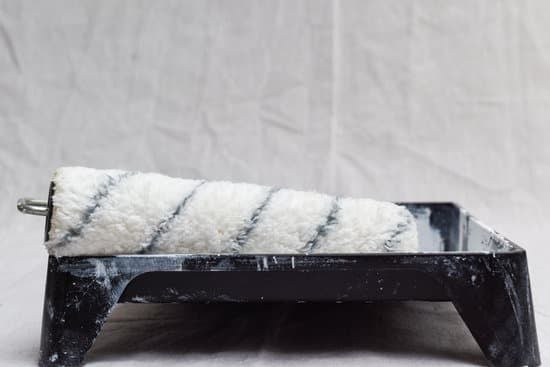Many homeowners find themselves wondering, “Can I pay for home improvement from LLC?” This question has become increasingly relevant as more individuals explore the use of Limited Liability Companies (LLCs) for personal expenses, including home improvement projects. In this article, we will delve into the concept of using an LLC for home improvement expenses and discuss the benefits and limitations of this approach.
Understanding LLCs is crucial in determining whether paying for home improvement from an LLC is a viable option. An LLC, or Limited Liability Company, is a business structure that combines the pass-through taxation of a partnership or sole proprietorship with the limited liability protection of a corporation. Operating as an LLC offers various advantages, which we will explore in detail.
One potential advantage of paying for home improvement from an LLC is the potential tax benefits it can provide. Additionally, using an LLC to cover home improvement costs can offer liability protection, shielding personal assets from potential risks associated with construction or renovation projects. However, it’s essential to consider any potential drawbacks and legal/tax implications that may arise when utilizing an LLC for this purpose.
Understanding LLCs
A Limited Liability Company (LLC) is a popular business structure for small businesses and entrepreneurs due to its flexibility and protection of personal assets. An LLC combines the liability protection of a corporation with the pass-through taxation of a sole proprietorship or partnership. This means that the owners (referred to as members) are not personally liable for the debts and liabilities of the company. Instead, their personal assets are protected from business creditors.
One of the key advantages of forming an LLC is the simplicity in which it can be managed. Unlike corporations, LLCs are not required to hold regular meetings or keep extensive records, making them an attractive option for those looking to limit administrative burdens.
Another benefit of operating as an LLC is the potential tax advantages. LLCs are typically treated as pass-through entities for tax purposes, meaning that profits and losses flow through the business to the individual members. This allows for flexibility in how income is distributed and taxed, providing potential savings compared to other business structures.
Overall, understanding what an LLC is and how it differs from other business structures is crucial for individuals looking to use this entity for home improvement expenses or any other personal financial matters.
| Advantages | Details |
|---|---|
| Liability Protection | Personal assets are protected from business creditors. |
| Tax Flexibility | Profits and losses flow through to individual members, providing potential tax savings. |
Advantages of Paying for Home Improvement From an LLC
When it comes to home improvement expenses, using a Limited Liability Company (LLC) can offer several advantages. One of the key benefits is the potential tax advantages that come with utilizing an LLC to cover these costs. By using an LLC, homeowners may be able to deduct certain expenses related to their home improvement projects, such as repairs or upgrades, which can result in significant tax savings.
Additionally, operating as an LLC provides liability protection for homeowners. This means that if there are any issues or liabilities that arise from the home improvement project, the LLC shields the individual homeowner’s personal assets from being affected. This separation between personal and business finances can offer peace of mind and financial security in case of any accidents or legal claims related to the home improvement work.
It’s important to note that while there are clear advantages to paying for home improvement from an LLC, there are also limitations and considerations that should be taken into account. Maintaining proper accounting and record-keeping for funds used for home improvement is crucial when operating as an LLC in order to stay compliant with legal and financial requirements. Understanding these factors is essential for homeowners who are considering using an LLC for their home renovation projects.
| Advantages | Details |
|---|---|
| Potential Tax Benefits | Deductible expenses related to home improvement projects |
| Liability Protection | Separation of personal and business assets |
Potential Drawbacks of Paying for Home Improvement From an LLC
Restrictions and Limitations
While using an LLC for home improvement expenses can have its advantages, there are also restrictions and limitations to consider. One of the main drawbacks is that using LLC funds for personal expenses, such as home improvements, can blur the lines between personal and business finances. This can potentially impact the liability protection that an LLC offers, as well as create complications when it comes to tax reporting and compliance.
Complexities of Accounting and Record-Keeping
Another potential drawback of using an LLC for home improvement expenses is the complexity of maintaining proper accounting and record-keeping. It’s important to keep clear and separate records of all expenses related to home improvement projects that are funded by the LLC. Failure to do so can result in legal and financial complications, including potential audits or disputes with business partners or members.
Potential Tax Implications
There may be tax implications to consider when paying for home improvement from an LLC. Using LLC funds for personal expenses could affect the tax status of the company and impact its ability to claim certain deductions or benefits.
Additionally, any distributions made from the LLC for personal use may also have tax consequences for the individual members or owners. It is crucial to consult with a tax professional or accountant to fully understand these potential implications before utilizing an LLC for funding home improvement projects.
Legal and Tax Implications
When considering using your Limited Liability Company (LLC) to fund home improvement projects, it’s crucial to understand the legal and tax implications of such a decision. Here are some factors to consider:
- Legal ramifications: Before using LLC funds for home improvement, it’s important to consult with legal counsel to ensure compliance with state and federal regulations. Certain states may have specific laws regarding the use of LLC funds for personal expenses, including home improvements.
- Tax considerations: Using an LLC for home improvement expenses can have tax implications. While there may be potential tax benefits, such as deductible business expenses, there could also be tax consequences depending on how the funds are used. It’s advisable to seek advice from a qualified tax professional to navigate any tax implications.
In addition, the Internal Revenue Service (IRS) may have guidelines or regulations related to using LLC funds for personal expenses. Understanding these regulations is essential to avoid any potential penalties or legal issues.
Lastly, keeping meticulous records and documentation of the use of LLC funds for home improvement is critical. This includes proper accounting practices and record-keeping to clearly delineate business and personal expenses. Failing to maintain accurate financial records could result in legal or financial complications down the line.
In summary, while using an LLC for home improvement can offer certain benefits, it’s essential to carefully consider the legal and tax implications before proceeding with this approach. Seeking professional guidance from legal and financial experts can help ensure compliance and mitigate any potential risks associated with utilizing LLC funds for personal expenses.
Steps to Paying for Home Improvement From an LLC
When deciding to use an LLC to pay for home improvement expenses, it’s important to understand the steps involved in leveraging your business entity for personal use. Here are some key considerations and steps to keep in mind:
- Evaluate Your LLC’s Financial Health: Before utilizing your LLC funds for personal expenses like home improvement, assess your company’s financial standing. Ensure that using these funds won’t jeopardize the stability and operations of your business.
- Create a Detailed Budget: Develop a comprehensive budget outlining the cost of your home improvement project. Factor in all expenses including materials, labor, permits, and any additional costs that may arise.
- Document the Transaction: It’s crucial to maintain clear and accurate records of all transactions between the LLC and its members. Generate proper documentation such as a promissory note or loan agreement detailing the purpose of the funds being used for home improvements.
- Fulfill Legal Obligations: Adhere to all legal requirements associated with using LLC funds for personal use. Consult with legal and financial professionals to ensure compliance with tax laws, regulatory guidelines, and any operating agreements governing the use of company funds.
Taking these necessary steps will help you navigate the process of utilizing an LLC for home improvement expenses while safeguarding both your business and personal finances.
Alternatives to Using an LLC for Home Improvement
Using an LLC to fund home improvement projects can offer certain advantages, such as tax benefits and liability protection. However, this approach may not be suitable for everyone. In some cases, individuals may want to consider alternative financing options for their home improvement expenses.
Personal Savings
One alternative to using an LLC for home improvement is to utilize personal savings. This entails using funds that have been set aside specifically for this purpose. By using personal savings, individuals can avoid the complexities and potential restrictions associated with using an LLC for personal expenses. Additionally, using personal savings eliminates the need to adhere to any legal or tax implications related to utilizing business funds for personal use.
Loans or Credit Lines
Another option is to explore traditional financing options such as taking out a loan or establishing a line of credit. Many financial institutions offer various loan products specifically designed for home improvement projects. These loans typically have designated terms and conditions tailored to address the specific needs of homeowners looking to renovate or remodel their properties.
Considerations
When weighing these alternatives against using an LLC, it is essential for individuals to carefully evaluate the pros and cons of each option. Personal savings provide immediate access to funds without incurring interest costs, but they may deplete cash reserves that could be needed for other emergencies or investments.
Loans or credit lines may require qualification based on creditworthiness and can result in long-term financial obligations with associated interest payments. Therefore, it’s crucial for individuals to assess their own financial situation and goals before deciding on the best approach for funding their home improvement projects.
By thoroughly examining these alternatives, individuals can make an informed decision regarding the most suitable method of financing their home improvement endeavors.
Conclusion
In conclusion, using a Limited Liability Company (LLC) to pay for home improvement expenses can offer certain advantages, such as potential tax benefits and liability protection for the individuals involved in the project. However, there are also drawbacks and limitations to consider, including the complexities of maintaining proper accounting and record-keeping for LLC funds used for personal expenses.
It is important for individuals to fully understand the legal and tax implications of using LLC funds for home improvement and to ensure compliance with all relevant regulations.
When considering whether to use an LLC for home improvement expenses, individuals should weigh the benefits and limitations discussed in this article. It is crucial to consult with a legal or financial professional who specializes in LLCs to gain a deeper understanding of how this business structure can be utilized for personal projects.
Additionally, exploring alternative financing options such as personal savings, loans, or credit lines may provide a clearer picture of the most suitable approach for funding home improvement endeavors.
Ultimately, while an LLC can provide certain advantages for paying home improvement costs, it is essential to carefully assess all factors involved before making a decision. By thoroughly understanding the implications and considering alternatives, individuals can make informed choices that align with their financial and legal obligations.

I’m thrilled to have you here as a part of the Remodeling Top community. This is where my journey as an architect and remodeling enthusiast intersects with your passion for transforming houses into dream homes.





